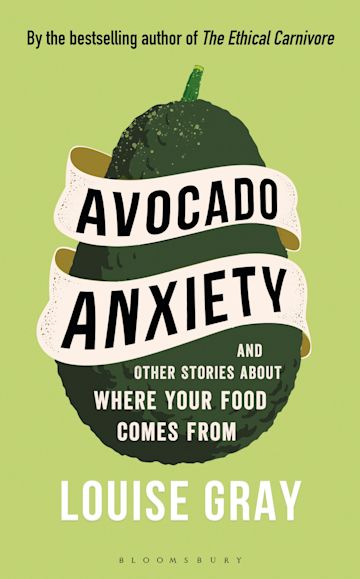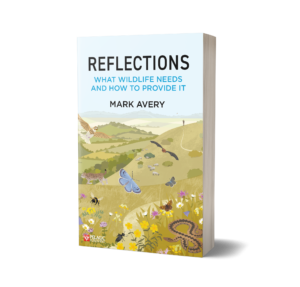
Louise Gray’s previous book, The Ethical Carnivore was 5th in my books of the year for 2016 (see review here), and this follow-up, also on food, is a contender for a top-10 listing this year, I reckon.
Eating fruit and vegetables doesn’t quite have the moral jeopardy attached to it that surrounds eating an animal killed for meat but where and how your vegetables are grown still has a potent ethical dimension in terms of environmental sustainability.
Here you can sink your teeth into tales of how avocados, apples, green beans, spuds, strawbs, courgettes, carrots and more are grown. You will discover that the food miles attached to your bite of vitamin C are important in its carbon footprint but you cannot quite always use distance travelled as a rule of thumb to make your choices. It’s a bit trickier than that, but not incomprehensively so, and Ms Gray is a good, clear guide through these issues (and I think she has got them right too).
UK hothouse tomatoes have a much higher carbon footprint than do Spanish tomatoes driven from the Coto Donana to the shelves of my local stores (but, slugs, drought and downpours permitting, my home grown toms are best) but those tasty green beans from Kenya are stamping phenomenally harder on the planet with their footprint than ones grown in the UK.
I’m glad it’s not just me who has been told that if I eat avocados (ever!) I’m destroying the planet more than a glutton for meat. But it isn’t true, although, avos are pretty high in their carbon footprint. You’d be right to have some avocado anxiety.
Once you add in the impacts of water and fertiliser use, felling of rainforests and treatment of local workers into the picture, then making choices is difficult. Life’s like that – most things are complicated unless you don’t think about them and then everything is easy.
This book is a very good read with a good mixture of stories and information. The author’s family were in the veg business and she has a go at growing her own food on an allotment – with varied success (like the rest of us, I guess). There’s a discussion of misshapen vegetables and of the branding schemes of the large supermarkets too.
This is a good read and a useful reference book at the same time.
The cover? Nothing special, and so a 6/10.
Avocado Anxiety and other stories about where your food comes from by Louise Gray is published by Bloomsbury.

My forthcoming book, Reflections, will be published on 4 July and already can be ordered.
Details – click here.
[registration_form]
Are there any references to fruit and politics.?
I seem to remember that in the late 60s/early 70s it was almost impossible to buy a politically acceptable orange.
I guess the politics of our time is climate change? Of course water, human rights etc remain pertinent but the climate crisis is perhaps the greatest threat to our survival? Is it politically acceptable in that case to eat meat? Bananas? Avocados?? I think it is such a wide issue it is impossible to boycott single goods, we have to be looking at the whole food system. I’ve told the story of certain fruit and veg in my book to try to make it easier to make decisions about at least some foods. I don’t think it’s any less complicated or loaded as the 1970s! Love to know what you think of the book.
It is certainly complex and focus on a single issue to the exclusion of others may lead to poor choices. In this regard I note that it is claimed that tomatoes from Andalucia are determined as having a lower carbon footprint than those produced in UK glasshouses. That may be true but the question of water use is also an important factor here. Excessive abstraction of water for the Spanish fruit and vegetable sector has for years placed extreme, damaging pressure on one of Europe’s foremost wetland areas, the Coto Donana and the extraordinary wildlife that depends on it. I certainly don’t know the answer to which is the most environmentally sustainable tomato on the supermarket shelves but I’m sure that carbon footprint is not the only factor to consider.
(I should stress that I haven’t read your book and it may well be that you try to weigh in all the relevant factors!).
Jonathan – and the book discusses those aspects too – as the paragraph in my review which starts ‘Once you add in …’ signals. It’s difficult stuff, but a common baseline on some aspects is a good start.
Yes, fair enough Mark. As you say, it is complicated stuff and I am sure that Louise’s book will be valuable in helping concerned shoppers navigate the issues. From the perspective of standing up for nature I felt it was important to highlight that water use is a significant issue for Spanish fruit and veg.
This sounds like a very good book. Since Kenya is mentioned that reminded me there’s hardly ever any raising of similar concerns about the international flower trade – the same issues for importing food, but the flowers don’t even get eaten. Massive resource use and ecological damage in countries with often rampant poverty and malnutrition so we can get cheap, naff bunches of flowers that go in the bin or compost after a couple of days. I’ll be writing a little about this in a near future guest blog.
Hi Les, I’ll keep an eye on your blog. Yes flowers farms in Kenya have been linked to human rights abuses and drought. Interestingly though charities like Oxfam are not entirely against export horticulture in Kenya and other African countries because of the economic development potential. They talk about ‘fair miles, not food miles’. It’s something I discuss in my book having spoken to the charity Farm Africa. Love to know what you think! As Mark says, it ain’t easy….
Since she wrote this a lot of those hothouses growing toms in the UK have stopped producing – because they use so much energy. I’m hugely sceptical about the magic ways of producing food in super-efficient greenhouses.
Farmers no doubt will use current shortages to up the ante on their food security campaign which is both wrong and I feel quite the wrong direction for farming. The food security they’re trying to sell includes your avocados and getting whatever you want whenever you want it – not quite the same as food security in 1940. The truth is we could feed ourselves tomorrow without any imports (except energy for fertiliser). Half our grain, produced on the best land, goes into animals, reducing the nutritional return by an absolute minimum of 4 times, and probably nearer 8. I’m not for zero meat – firstly, our ecology is omnivorous and secondly much of Britain (and the world) is better suited to producing food through animals than crops. But the diet we have been sold by the food industry is achieving something that war and disease have failed to do – the first ever reduction in longevity since records began. Excessive meat, salt, sugar, heavily advertised and backed up by appetite beating chemistry is the great disaster of our time, shielded from full view by massive spend on lobbying and advertising by the food industry. It’s not that difficult: before you do anything else check out the proportion of your food that is super-processed – and then check out the ingredients on the packet (all 35 of them).
Ah, that is a really interesting question. What is good security? Is it getting what you want? Or what is good for you? Or what feed the most people…. I think you are right, the focus has been too much on the productionist model, we need to think more about the environmental impact but personally I don’t think we can change peoples eating habits over night. I’ve tried to tell the full story of some foods so people can gradually switch to what is more environmentally sustainable. I’d love to know what you think of the book.